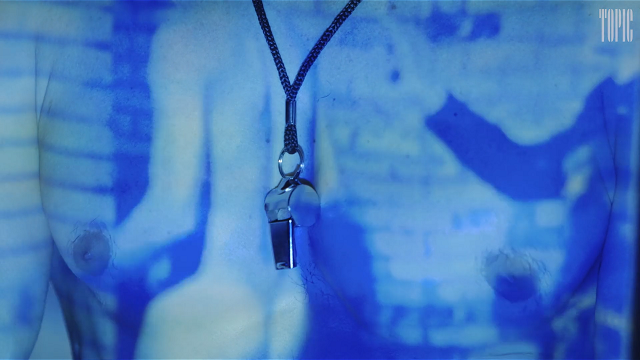Seattle filmmaker Wes Hurley became a local favorite for making the microcosmic YouTube series Capitol Hill. For all y’all non-Seattlites, Capitol Hill started as a seedy auto row neighborhood, then became known for being the alt neighborhood populated by the queers, punks, goths, and other anti-capitolists. Sometime around 2010, Capitol Hill’s identity started changing from being the gayborhood to being the hip place to be, and suddenly the neighborhood became inundated with tech bros and ladies who want to be in the “it” place to be. Hurley’s series was a lovingly satirical ode to all the queers, freaks, and outsiders who put their money into the neighborhood to make it desirable. The first series premiered episodes before BenDeLaCreme’s viewing parties for his first series of RuPaul’s Drag Race (gurl, if you watched all-stars this year…).
Wes’s taste for the surreally sublime comes through every short he makes. From his fetishized mermen short Rusalka to his frequent collaborations with local genderfucked burlesque performer Waxie Moon, Wes Hurley’s maintains his eye for formalized surreal imagery that recall underground cinema greats of yesteryear.
When retelling his and his mom’s life stories in the dual shorts Little Potato and Potato Dreams, Wes brings in genuine emotion to mix with his eye for the surreal. I claim these are dual shorts because they largely go over the same material, but they do so in wildly different ways and present their own masterclass in the different ways of telling a story. Still, I recommend watching Little Potato first before diving into its VR companion piece Potato Dreams.
Little Potato is largely comprised of Wes and his mom telling their life story starting with life in Russia in the 80s and 90s and moving to Seattle to start a new life. Wes accentuates the narration from his mom with bright blue static, clips from films, emotional restagings with projection, and real life photos. The tale takes a lot of twists and turns, some cruel and some heartbreaking, but Wes never loses sight of the humanity in the tale.
Little Potato from Topic on Vimeo.
Little Potato was followed by Potato Dreams, a immersive virtual reality version of the same story. You’ll want to watch this one with your phone or through goggles if you have them. Wes uses the 360 surround to have multiple screens surrounding the viewer. On one side, you could be watching a young boy hiding under the bed while on the screens beside you, you see what he’s afraid of. All the while, the watchful eye of Stalinist Russia hangs overhead in a bright red star.
Potato Dreams is what I imagine when I think of the possibility of immersive VR cinema. In a way, it reminds me of Mike Figgis’ Time Code, where I get to edit the experience from all the pieces that Wes is able to give to me. While every piece is important, you don’t need every part of every piece to see what is happening and to get the emotional impact of the film.
POTATO DREAMS | VR Film from Cargo Film & Releasing on Vimeo.


